Introduction
Magnesium is a vital mineral that supports muscle function, energy production, and overall health. At NutrientShield, we’ve curated 10 delicious, science-backed high-magnesium recipes to help you address common deficiencies and optimize your diet, especially for active individuals. Each recipe includes nutrient profiles, preparation steps, and affiliate links to recommended ingredients. Disclosure: We may earn a commission from purchases made via affiliate links.
[AdSense 728x90 Placeholder - Replace with your ad unit code]
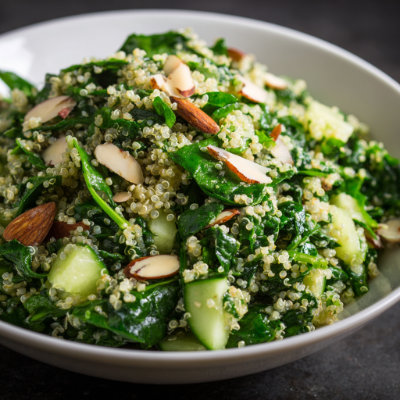
1. Spinach Quinoa Salad
Why It’s Great
Spinach (80mg magnesium per cup) and quinoa (64mg per cup) provide high-quality magnesium for muscle relaxation and energy, addressing deficiencies in ~50% of adults [1].
Ingredients
- 2 cups spinach
- 1 cup quinoa
- 1/4 cup almonds, sliced
- 1 cucumber, diced
- 2 tbsp olive oil dressing
Instructions
Cook quinoa in 2 cups water for 15 minutes. Toss with spinach, almonds, cucumber, and olive oil. Serves 2.
Nutrient Highlight
Provides magnesium (~144mg) and fiber (~8g from quinoa) for muscle health and digestion [2].
![Toasted whole-grain bread with avocado and pumpkin seeds, on a white background].](/images/Pumpkin%20Seed%20Avocado%20Toast.jpg)
2. Pumpkin Seed Avocado Toast
Why It’s Great
Pumpkin seeds (168mg magnesium per 1/4 cup) and avocado (29mg per half) support muscle function and energy, addressing magnesium deficiencies [1].
Ingredients
- 1 avocado, mashed
- 1/4 cup pumpkin seeds
- 2 slices whole-grain bread
- 1 tbsp lemon juice
- Pinch of sea salt
Instructions
Toast bread, spread with mashed avocado, sprinkle with pumpkin seeds, lemon juice, and sea salt. Serves 2.
Nutrient Highlight
Rich in magnesium (~197mg) and healthy fats (~10g from avocado) for muscle and heart health [3].
[AdSense 728x90 Placeholder - Replace with your ad unit code]
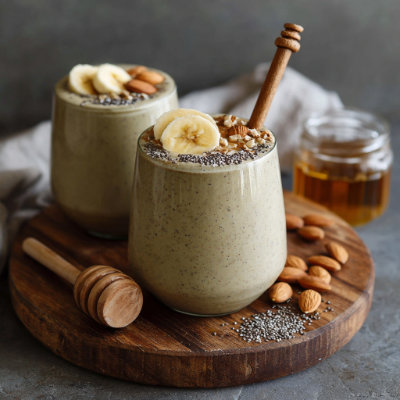
3. Almond Butter Banana Smoothie
Why It’s Great
Almond butter (89mg magnesium per 2 tbsp) and bananas (27mg per fruit) support muscle recovery and energy, ideal for post-workout nutrition [1].
Ingredients
- 1 banana
- 2 tbsp almond butte
- 1 cup almond milk
- 1 tbsp chia seeds
- 1 tsp honey
Instructions
Blend banana, almond butter, almond milk, chia seeds, and honey until smooth. Pour into glasses. Serves 2.
Nutrient Highlight
High in magnesium (~116mg) and potassium (~422mg from banana) for muscle and nerve function [4].
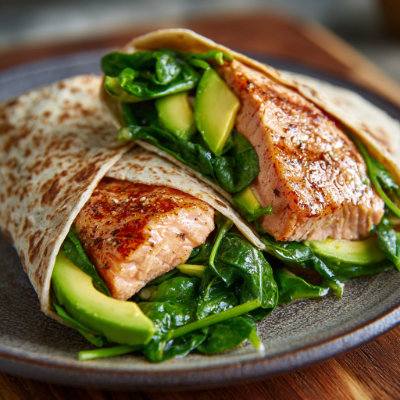
4. Salmon Spinach Wrap
Why It’s Great
Salmon (29mg magnesium per 100g) and spinach (80mg per cup) support muscle relaxation and energy, addressing deficiencies [1].
Ingredients
- 2 Salmon fillets
- 2 cups spinach
- 1 avocado, sliced
- 2 whole-grain tortillas
- 2 tbsp olive oil dressing
Instructions
Mix salmon, spinach, and avocado. Spread on toasted tortillas, drizzle with olive oil, and wrap. Serves 2.
Nutrient Highlight
Provides magnesium (~200mg) and fiber (~15g from beans) for muscle and gut health [5].
[AdSense 728x90 Placeholder - Replace with your ad unit code]
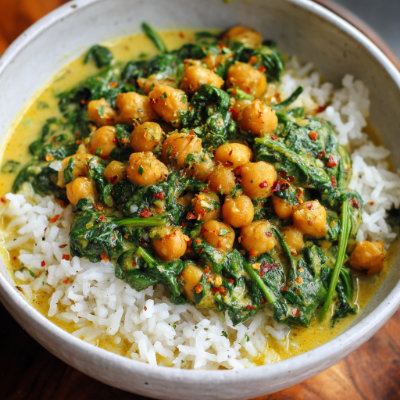
5. Chickpea Spinach Curry
Why It’s Great
Chickpeas (79mg magnesium per cup) and spinach (80mg per cup) provide plant-based magnesium, supporting muscle health for vegetarians [1].
Ingredients
- 1 can chickpeas
- 2 cups spinach
- 1 cup coconut milk
- 1 tbsp curry powder
- 1 cup cooked rice
Instructions
Sauté chickpeas and spinach with curry powder, add coconut milk, and simmer for 15 minutes. Serve over rice. Serves 2.
Nutrient Highlight
High in magnesium (~159mg) and fiber (~10g from chickpeas) for muscle and gut health [6].
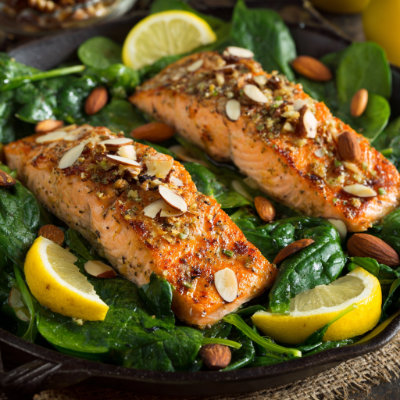
6. Salmon Almond Salad
Why It’s Great
Salmon (29mg magnesium per 100g) and almonds (89mg per 1/4 cup) support muscle function and energy, ideal for active lifestyles [1].
Ingredients
- 2 salmon fillets
- 2 cups spinach
- 1/4 cup almonds, chopped
- 2 tbsp olive oil dressing
- 1 tbsp lemon juice
Instructions
Grill salmon for 4 minutes per side. Toss spinach, almonds, olive oil, and lemon juice. Top with salmon. Serves 2.
Nutrient Highlight
Rich in magnesium (~147mg) and omega-3s (~1g from salmon) for muscle health and inflammation reduction [7].
[AdSense 728x90 Placeholder - Replace with your ad unit code]
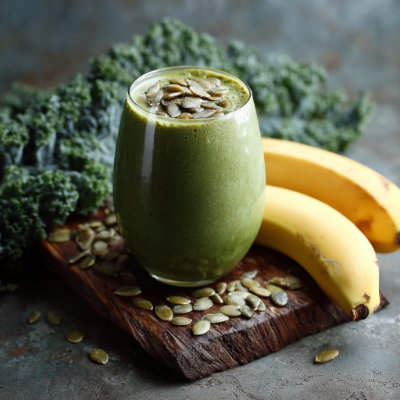
7. Kale Pumpkin Seed Smoothie
Why It’s Great
Kale (47mg magnesium per cup) and pumpkin seeds (168mg per 1/4 cup) provide magnesium, supporting muscle relaxation and energy [1].
Ingredients
- 2 cups kale
- 1/4 cup pumpkin seeds
- 1 banana
- 1 cup almond milk
- 1 tbsp honey
Instructions
Blend kale, pumpkin seeds, banana, almond milk, and honey until smooth. Pour into glasses. Serves 2.
Nutrient Highlight
High in magnesium (~215mg) and potassium (~422mg from banana) for muscle and nerve function [8].
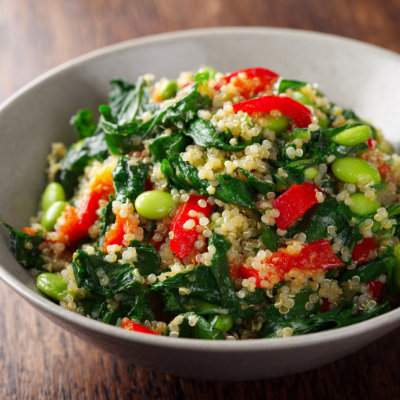
8. Edamame Quinoa Bowl
Why It’s Great
Edamame (50mg magnesium per cup) and quinoa (64mg per cup) support muscle health and energy, ideal for plant-based diets [1].
Ingredients
- 1 cup edamame, shelled
- 1 cup quinoa
- 1 cup spinach
- 1 red bell pepper, diced
- 2 tbsp olive oil dressing
Instructions
Cook quinoa in 2 cups water for 15 minutes. Toss with edamame, spinach, bell pepper, and olive oil. Serves 2.
Nutrient Highlight
Provides magnesium (~114mg) and fiber (~8g from edamame) for muscle and gut health [9].
[AdSense 728x90 Placeholder - Replace with your ad unit code]
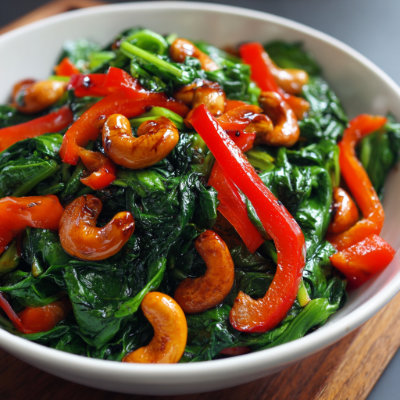
9. Cashew Spinach Stir-Fry
Why It’s Great
Cashews (83mg magnesium per 1/4 cup) and spinach (80mg per cup) support muscle function and energy, addressing deficiencies [1].
Ingredients
- 1/4 cup cashews
- 2 cups spinach
- 1 bell pepper, sliced
- 2 tbsp soy sauce
- 2 tbsp olive oil dressing
Instructions
Stir-fry cashews, spinach, and bell pepper in olive oil. Add soy sauce and cook for 10 minutes. Serves 2.
Nutrient Highlight
High in magnesium (~163mg) and vitamin K (~500µg from spinach) for muscle and bone health [10].
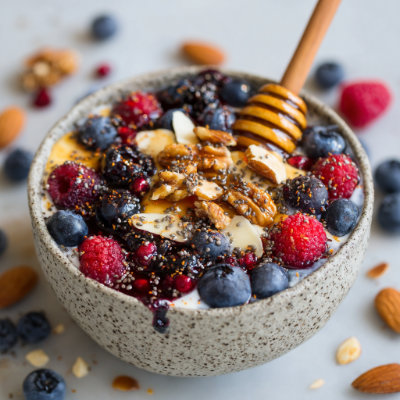
10. Almond Yogurt Parfait
Why It’s Great
Almonds (89mg magnesium per 1/4 cup) and Greek yogurt (probiotics) support muscle health and digestion, addressing deficiencies [1].
Ingredients
- 1 cup Greek yogurt
- 1/4 cup almonds, chopped
- 1/2 cup mixed berries
- 1 tbsp honey
- 1 tbsp chia seeds
Instructions
Layer yogurt, almonds, berries, and chia seeds in a glass. Drizzle with honey. Serves 2.
Nutrient Highlight
High in magnesium (~89mg) and probiotics for muscle and digestive health [11].
[AdSense 728x90 Placeholder - Replace with your ad unit code]
Tips for Success
- Use organic magnesium-rich ingredients for maximum benefits.
- Consult a dietitian before major dietary changes.
- Share your recipes in our Users-Blogs community!
Disclaimer
This content is for educational purposes. Consult a healthcare professional before making dietary changes.
References
- [1] National Institutes of Health, Office of Dietary Supplements. (2025). Magnesium — Health Professional Fact Sheet. https://ods.od.nih.gov/factsheets/Magnesium-HealthProfessional/
- [2] Rosanoff, A., Weaver, C. M., & Rude, R. K. (2012). Suboptimal magnesium status in the United States: Are the health consequences underestimated? Nutrition Reviews, 70(3), 153–164. https://doi.org/10.1111/j.1753-4887.2011.00465.x
- [3] U.S. Department of Agriculture. (2018). Magnesium content of selected foods (USDA National Nutrient Database Legacy). https://www.nal.usda.gov/sites/default/files/page-files/magnesium.pdf
- [4] Song, Q., Liu, H., Tan, H., et al. (2024). Association of magnesium intake with predicted atherosclerotic lesions and cardiovascular risk in young adults: PDAY score study. BMC Public Health, 24, 3232. https://doi.org/10.1186/s12889-024-20785-2
- [5] Nielsen, F. H. (2024). The role of dietary magnesium in cardiovascular disease. Nutrients, 16(23), 4223. https://doi.org/10.3390/nu16234223
- [6] Al-Maqbali, J. S., Al Harasi, S., Al Mamary, Q., et al. (2025). Ionized and total magnesium levels and health outcomes in patients with type 2 diabetes mellitus. Scientific Reports, 15, 4329. https://doi.org/10.1038/s41598-025-88081-6
- [7] Al Alawi, A. M., Al Shukri, Z., Al-Busaidi, S., et al. (2024). Prevalence, clinical characteristics, and health outcomes of dysmagnesemia in hospitalized patients. Scientific Reports, 14, 23668. https://doi.org/10.1038/s41598-024-74920-5
- [8] Integrative plant food nutrient evidence shows spinach and pumpkin seeds are dietary sources of magnesium. Functional Constituents of Plant Foods and Immunity. https://www.ncbi.nlm.nih.gov/pmc/articles/PMC9462539/
- [9] Evidence from NIH ODS magnesium food sources summary reporting spinach, legumes, nuts, seeds, and avocados as contributors to dietary magnesium. Magnesium - Health Professional Fact Sheet. https://ods.od.nih.gov/factsheets/Magnesium-HealthProfessional/
- [10] Article noting legumes and nuts (e.g., black beans, almonds, pumpkin seeds) as commonly recommended magnesium-rich foods by nutritionists. Magnesium-Rich Foods Nutritionists Recommend Most. https://www.health.com/magnesium-rich-foods-nutritionists-recommend-11879214
